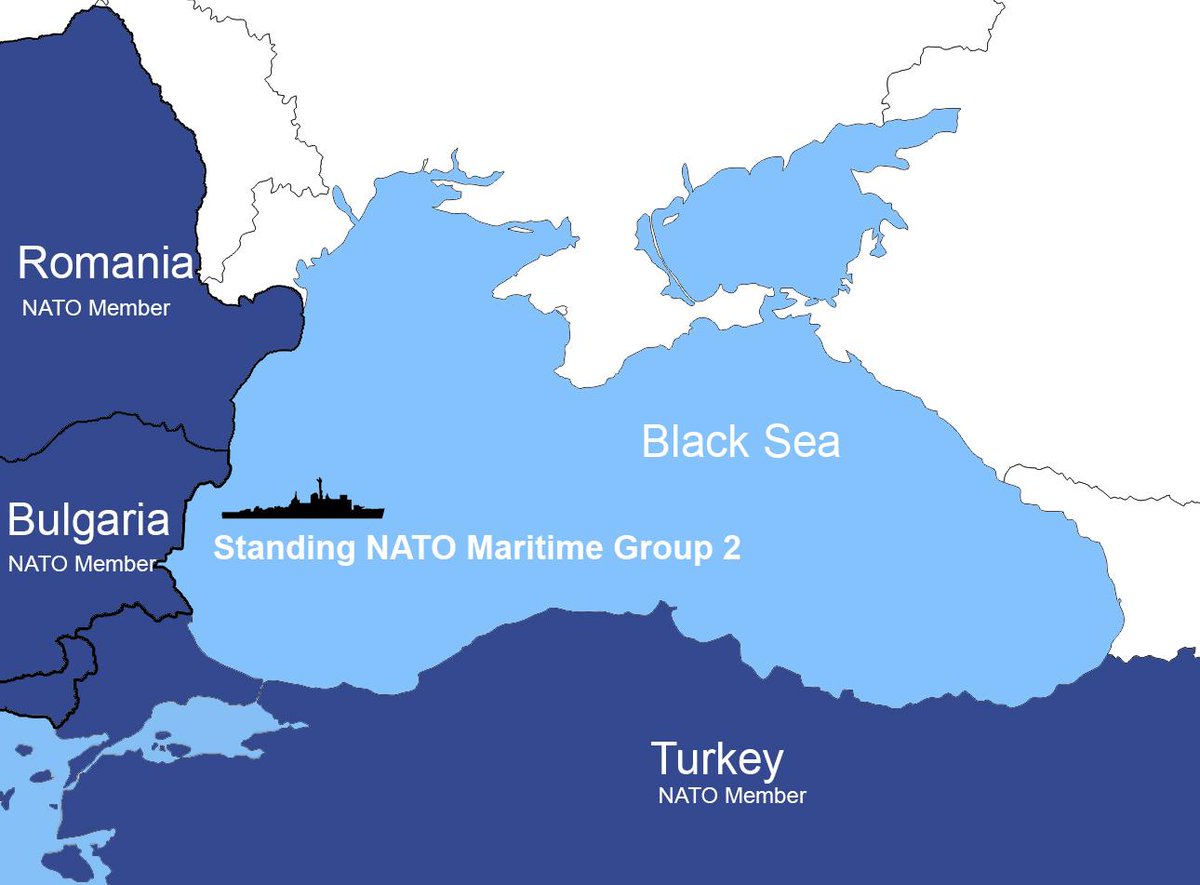
* For a review of the US's Black Sea strategy click here.
From a historical point of view, the Black Sea has been a strategic region for being a conduit between the landmass in the north of the Black Sea that was captured and colonized by Russia starting from the mid-16th century and the Mediterranean Sea. In order to project power in the Middle East, Northern Africa, and further to South Asia, Russia needs to have a strong standing in the Black Sea. Whereas the strategic importance of the Black Sea as a north-south conduit remains relevant, the collapse of the Soviet Union in 1991 and the rise of China as a great power particularly through its rapid economic development by the 2010s, the Black Sea region gained additional strategic significance as a conduit on the East-West nexus. Hence, today, the Black Sea region constitutes a very critical junction in both North-South and East-West directions. Needless to say, the Russian occupation and illegal annexation of Crimea in 2014 had been a turning point in terms of the Black Sea to acquire a more central significance within the context of growing great power rivalry in the 21st century. The Russia-Ukraine war which erupted in February 2022 sealed the strategic significance of the region on the global scale.
The US’ Black Sea Strategy
The US’ Black Sea strategy is built on the aforementioned geostrategic importance of the Black Sea and rests on two main pillars. The first and most obvious pillar is containing Russia in economic, political, and military spheres. The second, less apparent, and longer-term pillar is preventing China from having economic presence and political influence in the region. As Assistant Secretary of State for European and Eurasian Affairs James O'Brien in his statement put it, to pursue these goals the US concentrates on political and diplomatic engagement with the region; regional security and economic cooperation; energy security; and democratic resilience. Deepening partnerships with the regional countries in different fields is one of the main means of the US to prevent Russian and Chinese influence in the region. The EU is identified as the major ally of the US for its successful implementation of its Black Sea strategy.
Türkiye and the Black Sea Region
Türkiye is a primary actor in the Black Sea region. As such, it is a significant factor in the US’ Black Sea strategy. Türkiye’s military and naval capacities and its control of the Turkish straits stipulated by the Montreux Convention are important aspects to be factored in with respect to containing Russia in the Black Sea. It is also an important factor to consider for the objective of energy diversification and replacing supplies from Russia, for which further expansion of the Southern Gas Corridor would be a major step. Türkiye's central position on the east-west transport and energy routes needs to be reckoned with in regard not only to the containment of Russia economically but also to checking Chinese inroads to the region. As such, rapport with Türkiye would provide the US with an edge in the region.
However, the ongoing disagreements between Türkiye and the US stand as impediments to achieving such a rapport. The latter’s support of the PKK terrorist organization in Syria, the issue of F16 fighter jets, and the question of Ankara’s nod to Sweden’s NATO membership are some of the current disputes between the two NATO allies. The cracks between Türkiye and the EU are another factor that complicates Turkish-American relations. While failure to overcome these disputes creates disadvantages for both sides, this situation also complicates the effective execution of the US’ Black Sea strategy by alienating an important regional actor and a powerful NATO ally. Having said that, it should also be understood that the above-mentioned problems other than the flawed EU-Türkiye relations, are to a great extent possibly transitory, though failure to resolve them on time risks turning them into acute ones. The US support for PKK is becoming one such acute problem. Anyhow, there is still room for the resolution of these problems through goodwill, dialogue, and respect for international law.
US & NATO Military Presence in the Black Sea and the Montreux Convention
Yet, there are other issues, arguably more substantial and complicated ones to examine. The question of US and NATO military presence in the Black Sea region is one of those issues. In fact, the US and NATO military presence in the Black Sea region is a long-time question. The US Black Sea Security Act 2023 reveals that this question is still on the table. The discussions at the hearing of the Subcommittee on Europe and Regional Security Cooperation on the Department of State’s strategy for security in the Black Sea Region on 25 October are a good display of the concerns about this issue.
Senator Pete Ricketts (R-NE) at this hearing while acknowledging Türkiye as a “valued ally” and a “gatekeeper of the Black Sea” that continues to play a pivotal role in constraining Russia, rebuked Ankara’s balanced policy vis-à-vis Russia and stressed that Türkiye needs to choose between the “two sides.” Likewise, the Assistant Secretary of State for European and Eurasian Affairs James O’Brien acclaimed Türkiye’s closure of the Turkish straits, which he identified as a great contribution to Ukraine's security, however also stated that the US assesses whether the Turks established the “right balance.” Senator Ricketts answering a question on mining the western Black Sea to protect Russian assults on the cargo ships stated that minelayers could be regarded as defensive vessels and Turks could be persuaded to allow these vessels in the Black Sea. These comments reveal that the US policymakers while acclaiming Türkiye’s Montreux Convention-based decision to close the Turkish straits to foreign war vessels in the very early days of the Russia-Ukraine war, are still disposed to find ways to attenuate the Convention and convince Ankara to let NATO war vessels to sail into Black Sea without interruption.
The American persistence in diluting the Montreux Convention is an approach that clouds the strategic accord between Washington and Ankara. Moreover, attempts to openly or tacitly pressurize Türkiye raise mistrust in Ankara towards Washington. In any case, it is quite unlikely for Ankara to step back from its decades-long position and let the dilution of the Convention since it is a major safety valve for its Black Sea security and the overall stability of the Black Sea region.
Diversification of the Energy Supplies and the Southern Gas Corridor
The US&NATO military presence in the Black Sea is and will remain a point of divergence unless Ankara makes a dramatic U-turn from its outlook on the Black Sea security. To expect a change in Ankara’s outlook is, however, not realistic. Washington needs to understand this reality and adapt itself accordingly. The US goal to disconnect Black Sea countries with Russian energy by diversifying region’s energy supplies may, on the other hand, provide a ground for a strategic convergence with Türkiye in the field of energy.
Renewable sources, nuclear energy, and US LNG could help the US to diverge the Black Sea countries from Russian energy. However, the real move that would change the energy map of the region (and the EU) is the development of the Southern Gas Corridor (SGC), particularly by adding Turkmen gas into this energy route. Likewise, the gas that would be produced from the fields in the eastern Mediterranean could be a significant addition. The development of the SGC would be highly welcomed by Ankara since that would be a significant input for its strategy to become an energy transit hub country. The development of the eastern Mediterranean gas fields is more complicated due to the attempts to exclude Türkiye from a possible international consortium. Yet, this is a solvable issue on the principle of a fair share of the benefits among all the relevant actors including Türkiye. If such an approach is acceded by the US, the EU, and other parties, a win-win situation could be created sooner rather than later.
However, some signs coming from Washington make one wonder whether Washington has the intention to isolate Türkiye in the prospective energy map in the region. For example, U.S. Senator Jeanne Shaheen (D-NH) while sharing her thoughts about the east-west energy corridor at the above-mentioned hearing pointed out the seabed of the Black Sea as the location where the pipes would be laid between the South Caucasus and Balkans. The idea of constructing pipeline(s) underneath the Black Sea while there is already a functioning gas corridor passing through Türkiye, namely TANAP, is certainly absurd for economic and security reasons. Yet, from a political point of view, the question is whether this idea is a result of obvious foolishness or a reflection of a conscious strategic choice.
Cutting off China from the Black Sea Region
Apart from Russia-related goals of the US, blocking China from making inroads into the region is the less outward and long-term objective of Washington. Combined with the aforementioned issue of the Southern Gas Corridor, China-related objectives of the US may also lay the ground for the US-Türkiye accord.
The Chinese Belt and Road Initiative is the main tool of China to have an economic and subsequent political presence in the Black Sea. The reality is that Chinese investments in infrastructure projects in the region promise economic and strategic advantages to the regional countries, including Türkiye. Hence, US attempts to prevent Chinese investments, particularly those that would vivify the Middle Corridor, would not be received positively by Ankara. Conversely, if the US and/or the EU offer alternatives to Chinese investments, which would yield the same result - that is the improvement of the east-west transportation routes passing through South Caucasus and Türkiye - that would be a positive initiative. Indeed, Ankara would be quite eager for a US/EU-Türkiye cooperation on long-term projects to facilitate east-west trade and transportation. Ankara would also be open to cooperation with the US/EU in Central Asia.
…
All in all, Türkiye is a country that the US needs to factor in for the successful implementation of its Black Sea strategy. The existing problems between the two countries, however, stand as impediments. Some of these problems are rather relatively easy to resolve through goodwill, dialogue, and respect for international law. Yet, there are also more substantial differences between Türkiye and the US in their strategic outlooks. Here the point is that Ankara unyieldingly pursues what it identifies as its national interests. It has little or no flexibility in certain critical issues such as upholding the Montreux Convention. Therefore, it would be wise for Washington not to tamper with such issues.
Understanding Ankara’s motives behind welcoming cooperation opportunities with non-Western actors would also help Washington formulate result-oriented policies vis-à-vis Türkiye. As Türkiye is more and more marginalized by its Western allies and partners, a trend that reached an irrational level, Ankara, naturally, seeks to diversify its options in the international arena. In this context, economically promising prospects that are offered to Ankara by non-Western actors are highly welcomed. Accordingly, putting the relations between Türkiye and its Western allies and partners back on track would have a warming effect on Türkiye. Substantial progress in Türkiye-EU relations could be a major step in this regard. Yet, this is not a realistic expectation for the short and middle terms. Still, there is room for cooperation between Türkiye and the US/EU particularly with respect to east-west transportation and energy corridors. In fact, to start with that would be the wisest thing to do at this juncture.
*Picture: https://pbs.twimg.com/media/B_bMrCvU8AASi-h.jpg
© 2009-2025 Center for Eurasian Studies (AVİM) All Rights Reserved
No comments yet.
-
 THE FORCED EXILES OF THE CRIMEAN TATARS AND THE CIRCASSIANS
THE FORCED EXILES OF THE CRIMEAN TATARS AND THE CIRCASSIANS
Turgut Kerem TUNCEL 24.05.2017 -
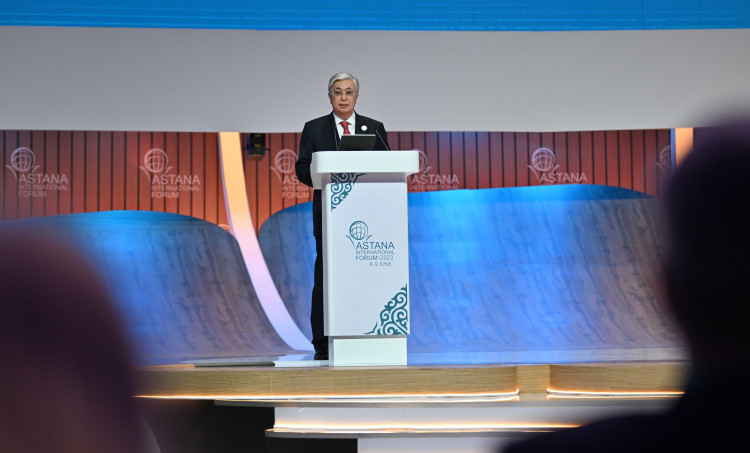 DISPLAYING THE ‘NEW KAZAKHSTAN’ IN THE GLOBAL POLITICAL SYSTEM: THE ASTANA INTERNATIONAL FORUM
DISPLAYING THE ‘NEW KAZAKHSTAN’ IN THE GLOBAL POLITICAL SYSTEM: THE ASTANA INTERNATIONAL FORUM
Turgut Kerem TUNCEL 13.06.2023 -
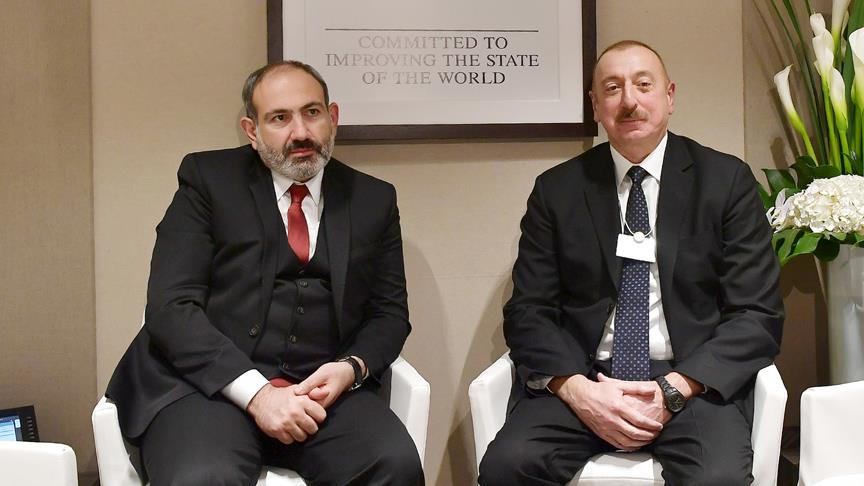 AZERBAIJAN-ARMENIA PEACE NEEDS STRATEGIC OUTLOOK AND PRAGMATIC STEPS
AZERBAIJAN-ARMENIA PEACE NEEDS STRATEGIC OUTLOOK AND PRAGMATIC STEPS
Turgut Kerem TUNCEL 20.12.2023 -
 THE 20 JUNE 2021 SNAP PARLIAMENTARY ELECTIONS IN ARMENIA - II: FORECASTS ON POST-ELECTION DEVELOPMENTS IN ARMENIAN POLITICS
THE 20 JUNE 2021 SNAP PARLIAMENTARY ELECTIONS IN ARMENIA - II: FORECASTS ON POST-ELECTION DEVELOPMENTS IN ARMENIAN POLITICS
Turgut Kerem TUNCEL 24.06.2021 -
 AN APPEAL OF THE ARMENIAN AND AZERBAIJANI CIVIL SOCIETY ACTIVISTS TO THE PRESIDENTS OF ARMENIA AND AZERBAIJAN
AN APPEAL OF THE ARMENIAN AND AZERBAIJANI CIVIL SOCIETY ACTIVISTS TO THE PRESIDENTS OF ARMENIA AND AZERBAIJAN
Turgut Kerem TUNCEL 05.12.2016
-
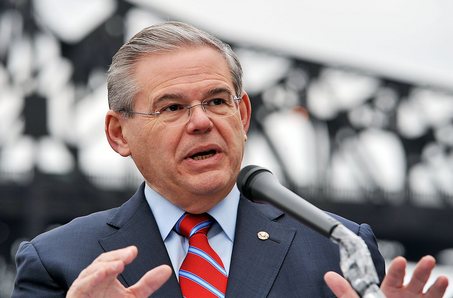 THE US SENATOR SUPPORTING THE ARMENIAN RHETORIC TO BE TRIED FOR CORRUPTION
THE US SENATOR SUPPORTING THE ARMENIAN RHETORIC TO BE TRIED FOR CORRUPTION
Hazel ÇAĞAN ELBİR 13.09.2017 -
SARKISIAN’S INVITATION
Ömer Engin LÜTEM 05.06.2014 -
 STATEMENTS BY THE ROMANIAN AMBASSADOR IN ARMENIA
STATEMENTS BY THE ROMANIAN AMBASSADOR IN ARMENIA
Ali Murat TAŞKENT 26.02.2015 -
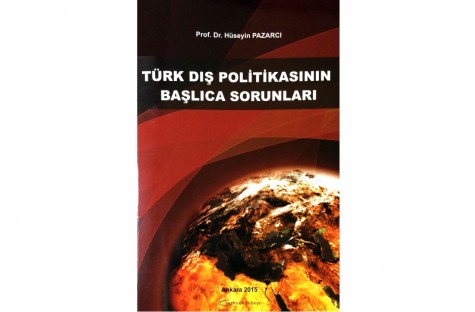 BOOK REVIEW: “TÜRK DIŞ POLİTİKASININ BAŞLICA SORUNLARI” (MAJOR ISSUES OF THE TURKISH FOREIGN POLICY)
BOOK REVIEW: “TÜRK DIŞ POLİTİKASININ BAŞLICA SORUNLARI” (MAJOR ISSUES OF THE TURKISH FOREIGN POLICY)
Hazel ÇAĞAN ELBİR 06.08.2015 -
 "RUSSIA USING the ‘ARMENIAN CARD’" - COMMENTARY PUBLISHED IN HURRIYET DAILY NEWS
"RUSSIA USING the ‘ARMENIAN CARD’" - COMMENTARY PUBLISHED IN HURRIYET DAILY NEWS
Turgut Kerem TUNCEL 01.12.2015
-
25.01.2016
THE ARMENIAN QUESTION - BASIC KNOWLEDGE AND DOCUMENTATION -
12.06.2024
THE TRUTH WILL OUT -
27.03.2023
RADİKAL ERMENİ UNSURLARCA GERÇEKLEŞTİRİLEN MEZALİMLER VE VANDALİZM -
17.03.2023
PATRIOTISM PERVERTED -
23.02.2023
MEN ARE LIKE THAT -
03.02.2023
BAKÜ-TİFLİS-CEYHAN BORU HATTININ YAŞANAN TARİHİ -
16.12.2022
INTERNATIONAL SCHOLARS ON THE EVENTS OF 1915 -
07.12.2022
FAKE PHOTOS AND THE ARMENIAN PROPAGANDA -
07.12.2022
ERMENİ PROPAGANDASI VE SAHTE RESİMLER -
01.01.2022
A Letter From Japan - Strategically Mum: The Silence of the Armenians -
01.01.2022
Japonya'dan Bir Mektup - Stratejik Suskunluk: Ermenilerin Sessizliği -
03.06.2020
Anastas Mikoyan: Confessions of an Armenian Bolshevik -
08.04.2020
Sovyet Sonrası Ukrayna’da Devlet, Toplum ve Siyaset - Değişen Dinamikler, Dönüşen Kimlikler -
12.06.2018
Ermeni Sorunuyla İlgili İngiliz Belgeleri (1912-1923) - British Documents on Armenian Question (1912-1923) -
02.12.2016
Turkish-Russian Academics: A Historical Study on the Caucasus -
01.07.2016
Gürcistan'daki Müslüman Topluluklar: Azınlık Hakları, Kimlik, Siyaset -
10.03.2016
Armenian Diaspora: Diaspora, State and the Imagination of the Republic of Armenia -
24.01.2016
ERMENİ SORUNU - TEMEL BİLGİ VE BELGELER (2. BASKI)
-
AVİM Conference Hall 24.01.2023
CONFERENCE TITLED “HUNGARY’S PERSPECTIVES ON THE TURKIC WORLD"









